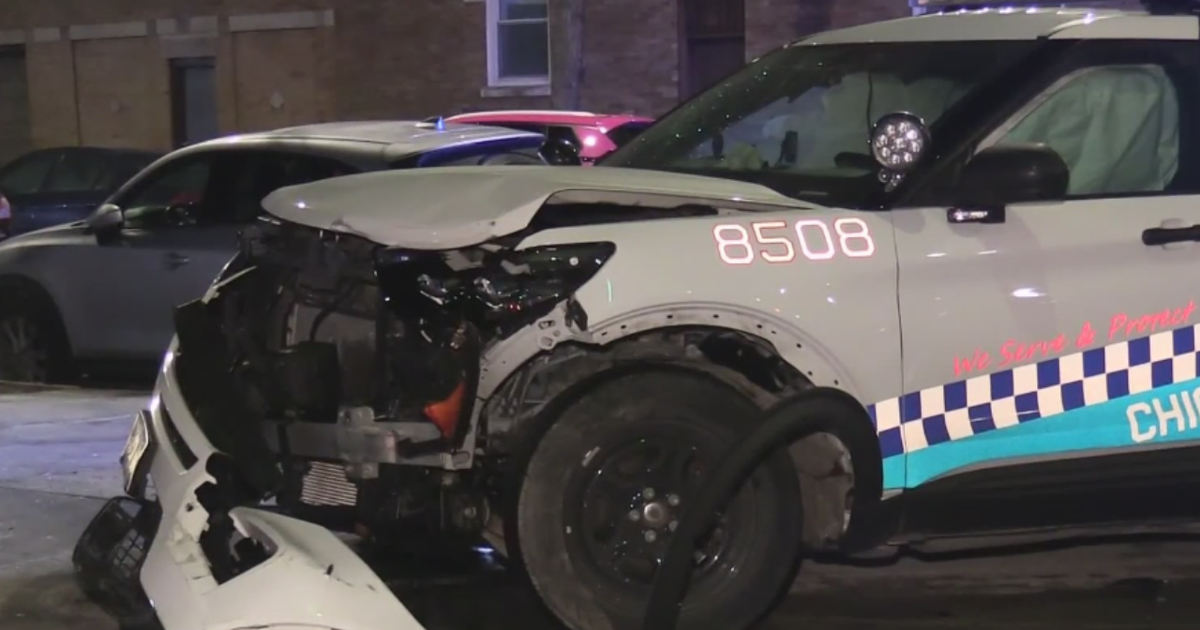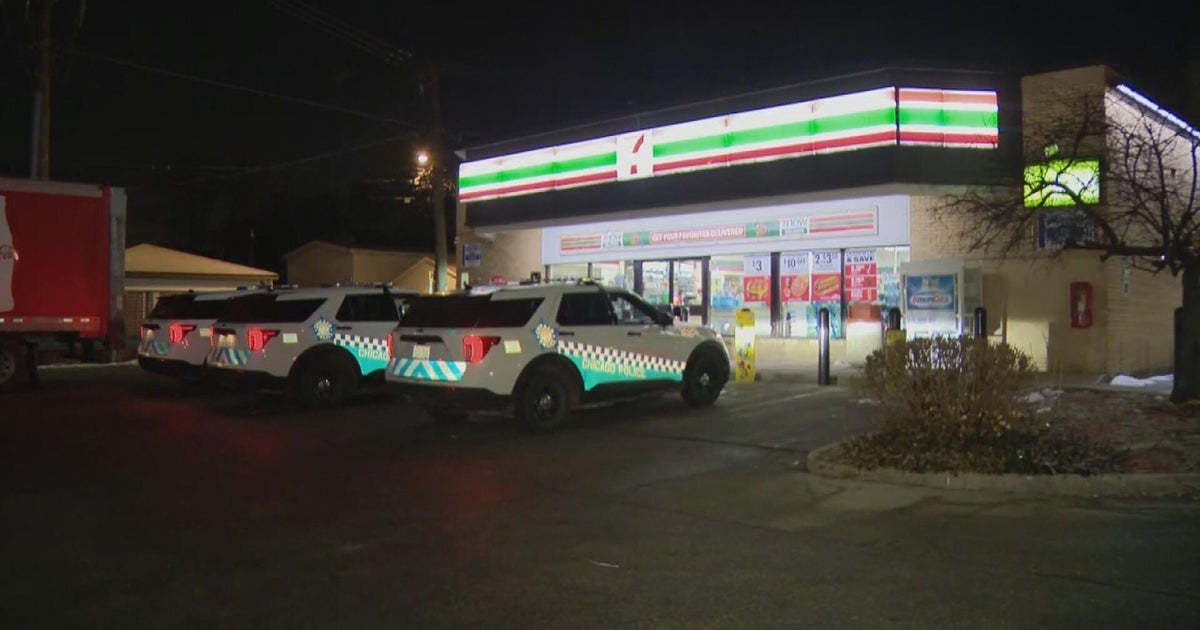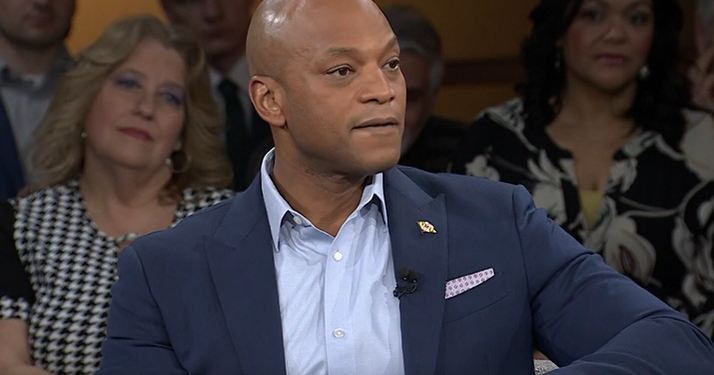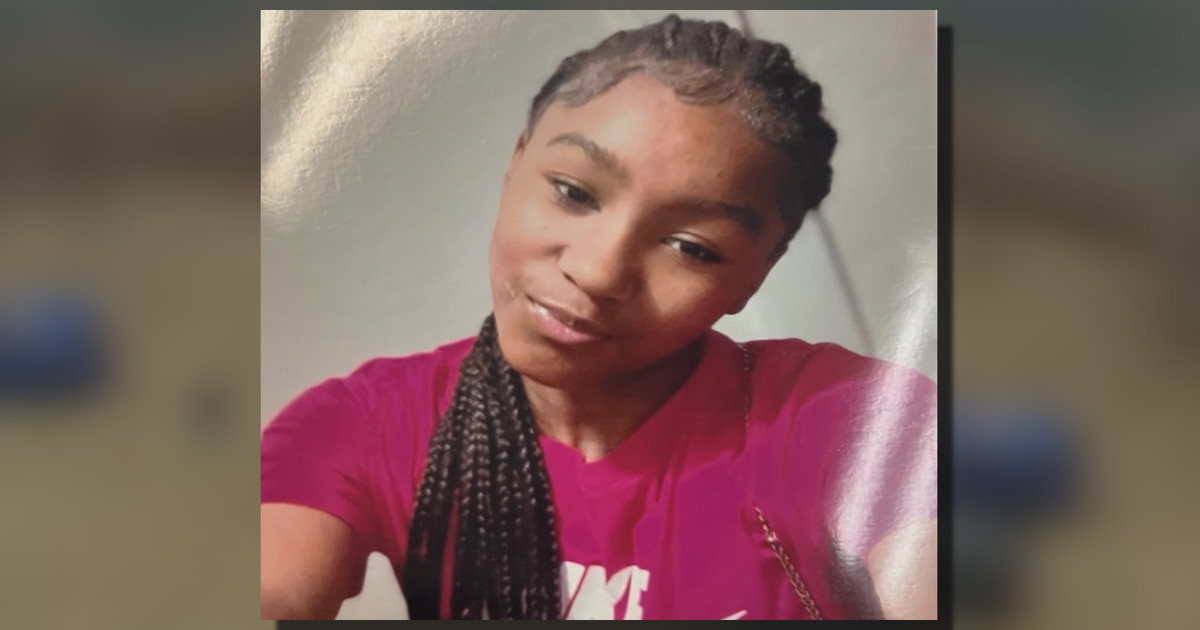2022 in review: What the CBS 2 Investigators uncovered
CHICAGO (CBS) -- In 2022, the CBS 2 Investigators uncovered new revelations on issues from protecting consumers from rogue towing companies to protecting children in the state's care, and we even revisited a 40-year-old murder mystery in Chicago that remains unsolved.
As we close the books on the year, we wanted to take a moment to focus on why what we do matters.
The truth behind the tow: 'Chicago stole my car that night'
Chrissy Monaco visits a friend in Chicago's Streeterville neighborhood often, so she's well aware of the sign warning of no overnight parking from 12 a.m. to 8 a.m. on that block. She parked at 471 N. McClurg Ct. and paid her meter up until 11:33 p.m. – but when she went to get her car at 11:15 p.m., it was gone.
She called private towing companies and the city tow information line to find her car – but found there was no proof of her car being towed. Ultimately, she called 911 to report her car stolen and then filed a police report. Monaco did all of those things before midnight when the "no parking, tow zone" rule took effect.
It turned out her car was in the City of Chicago Central Auto Pound, 400 E. Lower Wacker Dr. It had a ticket on it that said she was parked legally after midnight.
Monaco says she was angry, because "the ticket itself says that the issue date was 12/06 which is Monday not Sunday night, and that the time of violation is 12:30." She said this happened "even though I was already towed" by 11:15 -- 45 minutes before midnight -- when she left her friend's place to go home.
The Department of Streets and Sanitation admitted to CBS 2 that their "tow truck driver towed the vehicle in error." And, the handwritten parking ticket with the 12:30 a.m. time for violating the overnight parking ban? All made up.
Meanwhile, the city Department of Finance provided us figures detailing how many device-generated parking tickets versus handwritten tickets were issued in Chicago in 2021 -- more than 1.8 million parking tickets combined. More than 388,000 of those were written by hand, mostly by CPD enforcement officers who still use ticket books.
The Department of Streets and Sanitation added that of those 388,000+ handwritten tickets, more than 23,000 were written by city tow truck drivers. Streets and San calls incidents like Monaco's bogus ticket and wrong tow a "rare occurrence."
One week after she found her car at the city auto pound, Monaco contested the ticket in court and won. She got the ticket tossed with a promise to be refunded $175 for the tow and storage fee she had to pay to get her car back. That decision came on Dec. 13, 2021. But somehow, the ticket got resurrected and sent to her again in January with a reminder in mid-February.
A DOF spokesperson told us how Monaco's dismissed ticket came back to life: "The handwritten ticket had not yet been scanned into the system prior to its dismissal. The Ticket was scanned into the system on 1/4/2022."
During the period Monaco received the dismissed ticket again and again, she was also still waiting for her refund check. It was issued on 2/15/2022 after we started asking the city about her case.
A Streets and Sanitation spokesperson said the department is "in the process of moving to a digital system to track towed vehicles." That would speed up the process of finding a towed car. Streets and San added it "will review the potential to use a digital system for DSS tickets." The tow tracking digital system is expected to be up and running in early 2023.
Former worker speaks out about potentially cancer-causing chemicals being dumped outdoors
In the Village of Union in McHenry County, two businesses are accused of dumping highly toxic chemicals into the land and keeping the danger a secret from neighbors for decades. The businesses deny the allegations.
One plant, Phibro-Tech -- later bought and sold – is no longer operating in Union. Decades-old tests show the ground was contaminated.
Land around another plant, Central Wire -- which was once Techalloy -- also had contamination.
The Harper family home sits near the two businesses. In 2017, Dana Harper – now 48 – found a lump on her neck near her collarbone. She was diagnosed with Non-Hodgkin's Lymphoma and went through grueling treatment.
This year, for the first time, the former head of maintenance at Techalloy told what he believes about the company's handling of chemicals. In sworn testimony related to a lawsuit filed by Harper, Scott Karr alleged that thousands of gallons of a toxic cleaning fluid containing TCE, trichloroethylene, was dumped outside by other workers.
He claimed workers dumped chemicals on the side of the building.
TCE is a cancer-causing chemical that, over time, turns into vinyl chloride and DCE, dichloroethylene. They become vapors and can seep into homes. Records reported to the Illinois Environmental Protection Agency in 1990 reveal dichloroethylene was found on Harper's street.
Harper said dozens of neighbors on her street have had cancer, even died from it, through the years. One of those who died was her mother, Donna Gahl. She was diagnosed with blood cancer, multiple myeloma, at age 65. She died two years later in 2003. Her husband, Harold Gahl, is still grieving.
Gahl believes his wife's cancer and his daughter's cancer are connected.
In 1990, the U.S. EPA required Techalloy to do a cleanup - which is still going on over 30 years later. At the site of what was once Phibro-Tech, the IL EPA has been dealing with a voluntary clean-up.
Meanwhile, Harper wants new tests performed at her old grammar school. And getting back to Scott Karr, he is not only an insider -- he is also sick.
So far, eight other people from Harper's neighborhood have filed lawsuits and say they got sick too.
Getting Hosed: A woman fights the City over a water bill she never should have received
Getting Hosed, our exposé on Chicago's bad water billing, has saved consumers hundreds of thousands of dollars. We also have a database of dozens of you whom we've yet to get to. So we wanted to know – what happens if you take on the City yourself? We found out some answers in May.
Deborah Karim was embroiled in a near-decade-long fight over a water bill of more than $12,000 that should have been zero. It all started for Karim in 2013. She fought the Water Department on her own - and won.
Karim left Chicago in the wake of the 2008 financial crisis and moved to Florida. And before Karim lost her American dream to foreclosure, the two-flat she owned fell into disrepair – no utilities, pipes busted. Yet in 2013, the city hit Karim with a water bill for $1,030.02.
So Karim went to court before the Department of Administrative Hearings – like traffic court for water bills. At her hearing, a judge said the city did not have enough evidence to prove Karim used any water. Note again that she was in Florida, and the pipes were busted.
But then, six years later at a hearing in 2019, a City attorney said, "Because there is evidence that the water was on, the City did bill accordingly." The City was on Karim again – this time for $12,672.70.
So how did this happen? You guessed it. There was an unmetered account involved. Karim and 180,000 other Chicagoans have unmetered accounts. They are not billed on usage, but often bad guesstimates. In Karim's case she was fighting bills that had already been declared bogus six years prior.
Karim went for a new hearing and won – again. However, for just one trip back from Florida for one court date on Nov. 6 of last year, it cost Karim $1,803.40 between airline tickets, a hotel room, a rental car, and other expenses. And yes, she has receipts.
But Karim did not fly in for a court date just once. All told, she made seven such trips fighting the case. In all, she spent $12,623.80 for that. The water bill she was fighting was $12,672.70. Subtract the former number from the latter, and what do you have? $48.90. That's it.
And that's money that was never actually owed in the first place. In reality, Karim spent countless hours – and $12,623.80, with nothing to subtract it from – for a bill that a judge-deemed fake bill.
Report: Unfounded reports of suspicious activity overwhelmingly target Arabs, Muslims doing routine activities
In June, a report published by the Arab American Action Network (AAAN) and the Policing in Chicago Research Group at University of Illinois Chicago (UIC) said there was strong evidence a federal government program that encourages reporting "suspicious" behavior is disproportionately targeting and racially profiling Arab and Muslim Americans for seemingly everyday activities.
AAAN lead organizer Muhammad Sankari said the group stumbled on something in their research they'd never heard about before: suspicious activity reports (SARs).
SARs are produced as part of a federal program called the Nationwide Suspicious Activity Reporting Initiative. Administered by the U.S. Department of Homeland Security (DHS) and the FBI, the program was among many formed in the years after the 9/11 terror attacks. The suspicious activity reporting specifically was cited as necessary to thwart any future threats. An annual $2 million was earmarked to the program in 2007 when it was created, according to minutes from DHS committee hearings.
The government asks the public to contact local police agencies to report activity they deem to be "suspicious" or threatening, the website says.
Information on threats, including any SARs that are made, are received and analyzed by state-owned and operated facilities called fusion centers. These entities serve as focal points in states and major urban areas to gather, analyze, and share this information.
With the help of AAAN members Nadiah Alyafai, Majid Matariyeh, and Reema Rustom – all students at the time – the team painstakingly sifted through the reports. That's when they discovered a disturbing pattern: more than half of those who were reported for being suspicious were described as "Arab"," "Middle Eastern," "Muslim," or "olive skinned" - even though Arabs make up just over 1 percent of the state's population.
In addition, about 70 percent of all reports identified people of color as suspects. That's despite data from DHS and the FBI showing domestic extremists "advocating for the superiority of the white race" present the greatest threats of violence in the country.
While SARs are supposed to document threats, many of them reported Arabs and Muslims for doing everyday activities – a perpetual source of anxiety that the community is always being watched.
AAAN is calling for the end of SARs and the shutdown of fusion centers.
The Parking Scam: CBS 2 Investigators catch fake parking attendants ripping off drivers
CBS 2 Investigator Dave Savini reported in September that a threatening new twist to an old scam was causing fear among drivers heading to the ballpark.
An organized team of thieves on motorized scooters was spotted descending on side roads and Dan Ryan expressway exit ramps around Guaranteed Rate Field during the 2022 baseball season. These men, wearing yellow vests, stop drivers heading to White Sox games. They act like official parking attendants and push drivers into turning over $40.
Sox fans who have refused to pay up say they were accosted by the scammers.
Using cameras on the ground and a drone in the sky, the CBS 2 Investigators tailed the conmen. Before the game, they assembled in a Wentworth Gardens parking lot. One man stood out -- appearing to be the leader. He shouted orders, and continued seemingly to direct the men as they approached vehicles along the highway exit ramps.
One couple said group stopped them as they tried to turn by a church that sits near the official entrance to a White Sox parking lot. They reported a scammer demanded cash and became hostile and aggressive, even though signs near the ballpark that said only credit and debit card payments will be accepted.
Other fans reported their cars being blocked, kicked, or punched. One woman told a traffic aide she was spit on when she refused to pay. This type of aggressive behavior seems to be a new tactic added on to an old fake-parking-attendant scam.
In 2021, the CBS 2 Investigators exposed a different team of fake parking attendants ripping off drivers. They were selling bogus parking stickers for the street and then drivers got hit with parking tickets.
Following our investigation in 2021, The White Sox took action. The team removed all signs around the ballpark which say you could use cash to park. Now only credit and debit cards are accepted. The team also set up signs warning drivers to, "Say no to scammers." But despite the team's actions last season, conmen on scooters continue operating freely.
White Sox officials reached out to the CBS 2 Investigators this past summer, asking us to return to the ballpark and help stop the conmen. That's because last year, when police failed to stop the scammers, we confronted the crew and they scattered.
We tracked down this latest group of scammers using our drone back in August. When the conmen saw it, they scattered.
Chicago Tylenol murders: Who did it? No one has ever been charged, but questions still surround James Lewis
The CBS 2 Investigators this year revisited one of the Chicago area's most infamous unsolved crimes – which began unraveling 40 years ago in the suburbs.
A young girl from one family and three members of another were all rushed to emergency rooms. Three of them died. One lived for a few days. They had all taken Tylenol capsules before collapsing. Within hours, public health investigators discovered the cause of those deaths.
Who did it? It's a question we still ask 40 years later.
MORE READING: Three members of Janus family died in 1982, and pain has passed on to generations
Three key suspects appeared. One, James Lewis, spent 13 years in prison for a conviction related to the crime. But no one has ever been charged for the poisoning murders themselves.
In September, the CBS 2 Investigators learned Lewis was interviewed for hours outside of his Boston home. CBS 2 Investigator Brad Edwards traveled thousands of miles and traced the decades-long troubled track record of Lewis – the person neighbors call the Tylenol Man.
On Oct. 8, 1982, the early editions of the Chicago Sun-Times and Chicago Tribune broke the story of a letter sent to the manufacturers of Tylenol — Johnson & Johnson. In the letter, further cyanide poisonings were threatened, unless $1 million was placed in a postal box at Continental Bank in Chicago.
Lewis was tried in the extortion case, and was convicted by a jury in U.S. District Court in Chicago in October 1983. During Lewis' sentencing hearing on June 14, 1984, U.S. Attorney Dan Webb called him "a walking crime wave." Lewis was sentenced to 10 years for the extortion attempt.
MORE READING: Unraveling the Chicago Tylenol murders, one of the country's most infamous crimes
In two separate subsequent interviews with CBS 2's Mike Parker, Lewis denied any role in the murders. He has done so ever since.
Lewis later settled in greater Boston. In 2004, he was charged with raping and kidnapping a woman in Cambridge, Massachusetts. The case was dismissed the day before the trial, when the victim suddenly refused to testify. In 2009, FBI agents searched Lewis' apartment in Cambridge, Massachusetts, removing boxes of evidence.
And earlier this year, Edwards took a trip to Boston to find Lewis. He just went ahead and pressed a buzzer marked with the name "Lewis" at a residential building – and indeed a man came to the door. Edwards knew it was Lewis – and James Bell, a former Jackson County, Missouri, prosecutor who was involved in the case, corroborated it upon seeing the video.
What did Lewis say to Edwards? It was a peculiar exchange. More on that is all to come in our docuseries, "PainKiller: Tylenol Murders 40 Years Unsolved."
Student was body-slammed by a school resource officer, and family says police, school tried to cover it up
A family has been fighting for answers and justice after a police officer slammed their teenage son to the ground in his high school.
Parris Moore suffered a fractured skull and permanent brain damage.
Parris was just two weeks into his freshman year at Auburn High School in Rockford last year. Video shows Parris wandering the hallways when he was supposed to be in class. The assistant principal tries to stop him and grabs him. Parris tries to get away. Then Student Resource Officer Bradley Lauer takes over.
He grabs Parris, lifts him up, and forces him head-first into the hard school floor. The 4-foot-11, 140-pound teen was knocked out cold.
Parris' grandmother said, when she arrived, her grandson was unsteady, had bruising on his body, and complained of knee pain. But it was his head that was really hurting. Hospital scans revealed the source of the head pain - a skull fracture.
She says Lauer, a Rockford police officer who had been detailed at the school, told her there was only a little struggle before Parris slipped and fell.
The family did not believe that, or the school's account of what happened, given the size of the skull fracture. They demanded to see the school security video, and hired an attorney.
The CBS 2 Investigators obtained federal data from the 2017-2018 school year, the most recent available. It shows Auburn High School referred students to police 72 times that year, resulting in 43 arrests. The data also reveal the school referred students more often to police than 94 percent of all other high schools in the nation.
The Rockford school district and police department refused to comment on the head slam and treatment of Parris. Attempts to reach the officer was unsuccessful.
The family's attorney has filed a lawsuit.
Will County Sheriff releases body camera video from police shooting that killed grandfather, grandson
In late November, the Will County Sheriff's Office released body camera video showing the moments deputies shot and killed a grandfather and his grandson inside their Joliet Township home in 2021. This came after months of CBS 2's reporting about a lack of transparency with how the sheriff's office communicated what happened to the public, and their refusal to initially release the video or any police reports.
On Nov. 6, 2021, deputies responded to a call about an argument between 70-year-old Eldred Wells Sr. and his 21-year-old grandson, Jabbar Muhammad. The caller, a relative, said Muhammad had a knife and was arguing with Wells.
According to records obtained by CBS 2, and interviews with family members, it appeared Muhammad was in the midst of a mental health crisis when deputies arrived that day. This was the second time in 10 days deputies were called to the home. Records show they responded to a suicide attempt by Muhammad on Oct. 27, 2021. He was admitted to the hospital and treated. He was released on Nov. 6, 2021 – just a few hours before the fatal incident.
Police said they attempted to de-escalate the situation. But when Muhammad stabbed Wells in the neck, police fired shots several times "in defense of Eldred's life," a statement from the task force investigating the incident said at the time.
But the statement left out a key detail – deputies shot and killed Wells too. CBS 2 was the first to uncover this fact in April of this year. An autopsy report shows Wells died of multiple gunshot wounds.
In the video – which CBS 2 made a decision not to show in full – sheriff's deputies are seen approaching the doorway to the home and announcing themselves. After entering, Muhammad and Wells are seen standing near each other. A deputy repeatedly orders Muhammad to put down the knife. Muhammad refuses. Approximately 33 seconds after the deputies first entered the home, Muhammad lunges toward his grandfather and stabs him. Deputies fire shots at Muhammad, and both he and his grandfather fall to the floor.
There are still many unanswered questions about what the video shows and how deputies responded. Family members of Wells and Muhammad sued the sheriff's office in October, accusing deputies of failing to separate the two before firing shots. The lawsuit also accuses the deputies of yelling at the scene and agitating Muhammad before he lunged at Wells with the knife.
Neglect and abuse allegations against foster parents lead to state lawmaker demanding change
A staggering discovery made by the CBS 2 Investigators had Illinois State Rep. Lakesia Collins (D-Chicago) calling for a new law in December. The team uncovered a pattern, dating back to 2016, of the Illinois Department of Children and Family Services routinely closing abuse and neglect claims against foster care parents - classifying them as unfounded 90 percent of the time.
Collins knows about foster care abuse from her own personal life experience. She grew up in the DCFS system as a foster child, but she was not aware how overwhelmingly often Illinois foster parents are cleared of abuse and neglect allegations. The nine times out of ten statistic CBS 2 uncovered in the data is a number the agency has kept secret.
Collins also did not know about something else the CBS 2 Investigators uncovered -- DCFS fails to track how often it contacts police when they receive reports about child abuse and neglect within the DCFS system.
In November, we reported on 14 former foster care children who came forward to expose a troubling pattern of unfounded abuse within DCFS. Each person said they suffered abuse while in care, yet none of their offenders were ever held responsible.
The CBS 2 Investigators conducted an exhaustive analysis of how thousands of child abuse and neglect allegations, dating back to 2016, were handled by DCFS. We obtained never-before-seen data revealing a deeply troubling pattern. When an allegation of child abuse or neglect is made, nine out of ten times DCFS classifies it as unfounded.
The most common form of abuse we found involves physical harm and neglect. Allegations include bone fractures, head injuries, burns, and torture. A staggering number of these allegations, 91 percent, were classified as unfounded by DCFS investigators.
The data the CBS 2 Investigators obtained contains more than 6,000 abuse and neglect allegations made against 3,200 foster parents. While overall, nearly 90 percent of all allegations go unfounded, allegations of sexual offenses including sexual abuse risk, molestation, penetration, and exploitation, also have been unfounded by DCFS - 88 percent of the time.
New Chicago tow ordinance is not putting the brakes on rogue towers
A new city of Chicago ordinance passed on May 26, 2021, and took effect 90 days later, in late August. It was supposed to put the brakes on wreck chasers and protect accident victims.
The new ordinance requires most companies towing damaged or disabled vehicles within the city of Chicago to get a $250 license for each storage lot and each tow truck. City of Chicago tow trucks and tow companies with a city contract are exempt.
The law also makes it illegal for tow trucks to solicit business at an accident scene without being called by the vehicle owner, police, or insurer; to misrepresent themselves; to mislead, or to threaten the vehicle owner.
The ordinance provides for penalties of at least $500 and up to $20,000 in fines, and potential arrest for ignoring cease and desist orders issued.
But 15 months later, the CBS 2 Investigators found very few companies complying with the law, and potentially hundreds more violating it.
On Dec. 8, the Illinois Commerce Commission (ICC) told CBS 2 that 582 tow companies are actively registered as safety relocator towers in five counties: Cook, DuPage, Kane, Will, and Winnebago. CBS 2 analyzed City of Chicago publicly available data, which shows 27 companies with tow truck and/or storage lot licenses issued as of mid-November.
That leaves the potential for dozens, if not hundreds, of tow companies operating without licenses in city limits.
Through a public records request, the CBS 2 Investigators also learned that receiving a cease-and-desist order has spurred a few tow truck companies to apply for and be issued licenses for their lots and trucks.
CBS 2 discovered some big loopholes in the law. One allows for city licenses to be issued to companies with spotty state histories. Another loophole is that companies are simply not complying with the law despite facing fines, cease and desist orders to stop operating, and possible arrest if caught.







